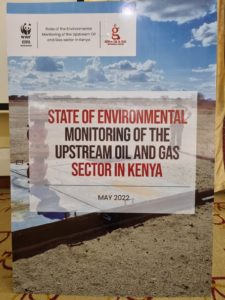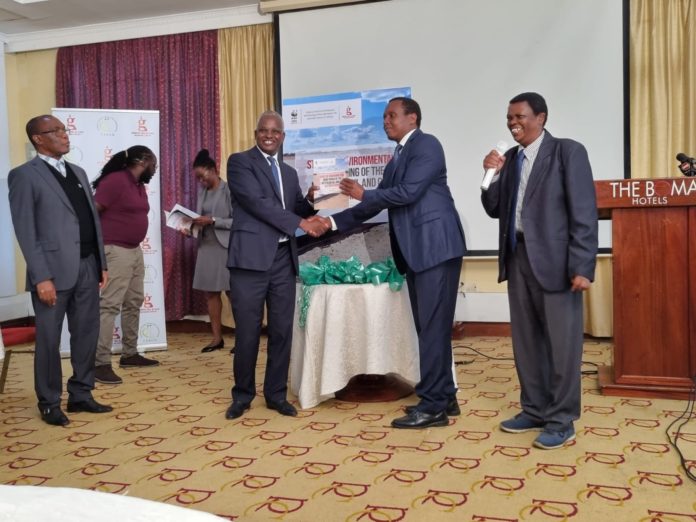By Lenah Bosibori
Nairobi, Kenya: A 60-page report titled ‘State of environmental monitoring of the upstream oil and gas sector in Kenya’ released in Nairobi on Tuesday says that the waste may lead to possible leakages that end up contaminating the soil.
“Some sites have not been secured, the community members have gained access and are making use of lining materials from the waste handling facilities for domestic use thus potential exposure to hazardous substances,” read part of the report.
In 2019, World Wide Fund (WWF) commissioned the oil and gas working group to start the survey in Turkana and Lamu among the 63 oil blocks in the country.
‘So this report is aimed at raising awareness because the communities continue with life unaware of the potential impacts from using such materials, and hence, in the next 10 to 20 years, cases of cancers are going to come up, said Muturi Kamau the Executive Director Kenya Oil and Gas working group.
He adds that It is actually up to players in the sector to make sure that they create awareness through this particular study on those particular areas highlighted.
According to Aron Kecha, a lead expert in the report, equipment that has been used for waste management is already in the hands of communities.
“Like with Turkana, some of the lining materials that are being released for holding waste are being used by communities, in their homes, ” added Kecha.

“The impact might not be felt now, but in the next five years, u might find that people may be suffering from funny conditions that you can not trace back,” added Kecha.
In response to the queries raised in the report, Selelah Okoth principal Compliance Officer at National Environment Management Authority (NEMA) said that So far, they have developed a key assessment tool that was developed early in the year 2016 to ensure sustainability in the sector.
The report also highlights issues of access to information. “There is some information that you cannot gain. And I think that is one of the key areas because companies will come out and say that they cannot share data because of the non-disclosure agreements that occurred on the production sharing contract,” added Kamau.
“One of the things that we’ve been really vocal about is transparency and accountability because we are really pushing on civil societies, government, and oil and gas companies to be transparent so that we actually understand the products and sharing contracts,” added Kamau.
Also, the report recommended a need to facilitate the statutory bodies and invest more in staff capacity to be able to take the roles.














